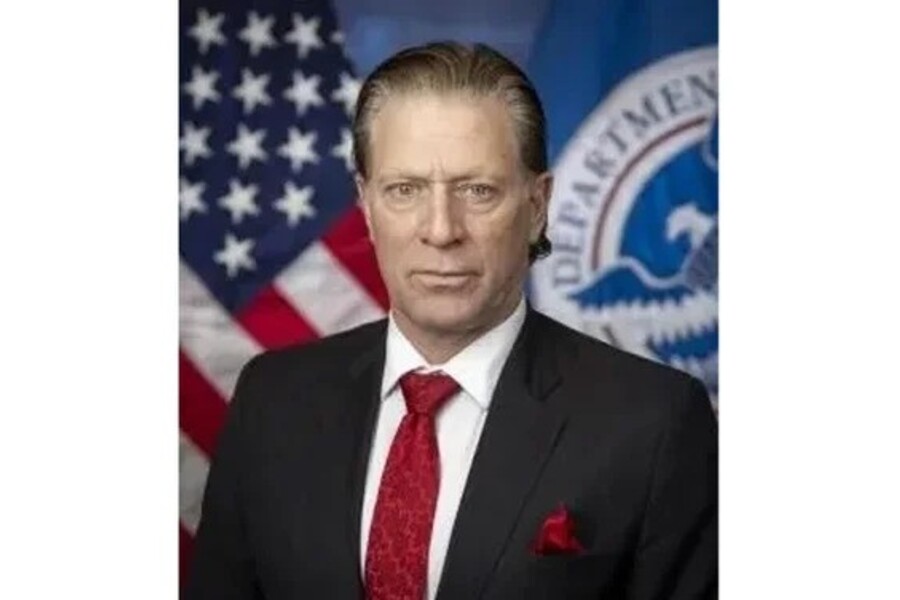The Federal Emergency Management Agency (FEMA) was under scrutiny on Monday after the acting head, David Richardson, remarked during a daily staff briefing that left many employees confused and disheartened. According to three sources familiar with the meeting, Richardson stated that he had not been aware that the United States has a hurricane season—a comment that, regardless of its intent, rattled staff and highlighted broader morale challenges within the agency.
The comment came at the end of FEMA’s 8:30 a.m. daily operational briefing, which is typically attended by hundreds of FEMA staffers as well as interagency partners from across the federal government. Sources told CBS News that the reaction in the room was one of uncertainty and unease. Some staffers were unsure whether Richardson was joking or serious, but several attendees said it seemed he genuinely did not realize that hurricane season had officially begun on June 1.
“People were stunned,” said one current FEMA staffer who requested anonymity to speak candidly. “We’re the federal agency responsible for helping communities prepare for and respond to hurricanes—and our acting head didn’t seem to know that hurricane season even exists.”
Richardson, a former Marine Corps officer, has been leading FEMA since early May following a leadership transition. His comment comes at a time when FEMA is grappling with high staff turnover, internal restructuring, and a wave of resignations and firings that have left employees feeling demoralized. Additionally, the agency recently implemented polygraph testing for some staff members, adding to an atmosphere of unease.
In response to questions from the media, the Department of Homeland Security (DHS) sought to clarify the incident, suggesting that Richardson’s comment was intended as a joke. “Despite meanspirited attempts to falsely frame a joke as policy, there is no uncertainty about what FEMA will be doing this Hurricane Season. FEMA is laser-focused on disaster response and protecting the American people,” a DHS spokesperson said in a statement.
The Atlantic hurricane season, which runs from June 1 through November 30, is a crucial period for FEMA’s disaster preparedness and response operations. The National Oceanic and Atmospheric Administration (NOAA) recently predicted an above-average season, forecasting 13 to 19 named storms, with six to 10 expected to become hurricanes and three to five potentially strengthening into major hurricanes.
For communities in hurricane-prone regions, FEMA’s readiness is essential. Local and state governments, as well as emergency managers, rely on FEMA’s coordination and resources to manage evacuations, provide shelter, and support recovery efforts when storms strike. Given the prediction of an active season, any perceived lapse in leadership readiness could undermine public confidence in the agency’s ability to respond effectively.
Despite the agency’s reassurances, the incident underscores the broader morale and leadership challenges FEMA faces as it heads into a potentially demanding hurricane season. As one former FEMA official put it, “When your leader says they didn’t know there’s a hurricane season—even if it was a joke—it sends a message that maybe they’re not taking things as seriously as they should. That’s not the message FEMA needs right now.”
Why It Matters: The comment by Acting Administrator Richardson, whether serious or in jest, has become emblematic of the strained climate within FEMA, where staffers are seeking strong and steady leadership in the face of both internal upheaval and the external threats posed by natural disasters. As communities brace for an active hurricane season, questions about FEMA’s readiness and leadership’s seriousness only add to the agency’s challenges.
What’s Next: FEMA leadership will need to address employee concerns and reinforce confidence both internally and externally. Richardson and the DHS are expected to continue emphasizing the agency’s commitment to preparedness and response, but staff morale and public trust may require more than clarifying statements—it may take tangible leadership actions and effective disaster management to reassure stakeholders that FEMA is fully prepared for the months ahead.
If you’d like, I can expand on any section or add quotes from relevant experts or stakeholders to deepen the story. Let me know!

